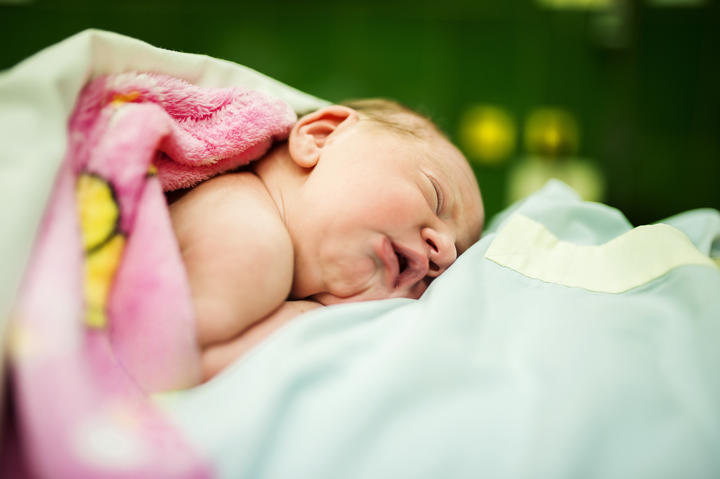
File photo.
Photo: 123RF
The Human Rights Commission chief legal advisor, Janet Anderson, said the law was "discriminatory and not fit for purpose".
"It is way out of date...it is really difficult because the legal framework does not actually accommodate open adoptions or whanāu arrangements which have become more frequent and also doesn't recognise important cultural rights and principles."
In 2016, 873 adoptions were recorded by the Department of Internal Affairs, and just 128 of those were from within New Zealand.
Practice Advisor of Oranga Tamariki Adoption Services, Peter McGurk said there has been a rapid decrease in the number of adpotions over the years.
But now, there are only 20-25 children being adopted each year, he said.
He said the most common type of adoption was open adoption, which the law did not support and relied solely on "agreement" and the willingness of the adopting family to choose on whether to permit the mother to stay in touch with their biological child.
Krista Mortensen from Christchurch has first hand experience with the adoption process.
She gave her son up for adoption after she fell pregnant at 14 and said at that point in her life she was not ready to have a child.
"There is a reason we don't have many adoptions in this country. That's probably because it is not something that is very accessible and it is not an easy process. If we are going to talk about women having free choice, we need to make every option available and I did not find it easy to come by," she said.
It would be timely for the government to look into this following their review on the abortion bill, she said, which has just been removed from the Crimes Act.
She considered having an abortion until she found out that a close friend had previously decided to give their child up for adoption.
"It helped me realise the process was a possibility," she said, despite the difficulties that followed.
The current adoption law "doesn't actually allow for the types of adoptions which we do most of in New Zealand which is whānau adoptions or open adoption. It is all very much secretive, closed adoption, give the baby to a family and never contact that child ever again", Mortensen said.
She said she was surprised and fortunate to have picked a family who agreed to stay in touch so she can still see her son occasionally, and watch him grow up.
McGurk said, when birth parents sign their consent to adoption, they relinquish all legal standing in relation to their child - so do not have any 'legal status' concerning how the 'statement of intent' regarding future contact and relationships actually pans out in practice.
He said it was important that birth parents placing a child for adoption understood this - which was why their consent to adoption had to be taken by a lawyer - who makes a statement to the Court to confirm that the birth parent has made an informed decision and is aware of the implications of the step that they are taking.
Mortensen hoped the government would look seriously at changing the adoption law.
Prime Minister Jacinda Ardern has previously shared her thoughts on the issue and publically admitted the laws were in need of a review.
A recent example was a social media comment to New Zealand broadcaster Toni Street, who struggled to formally adopt her son born through surrogacy.
Ardern replied to Street's post on Instagram saying: "The adoption act is well over 50 years old and definitely needs fixing. It's on our work programme!"
In 2016, the Human Rights Review Tribunal ruled that the following provisions were inconsistent with the Bill of Rights:
- The requirement for sole male applicants to prove "special circumstances" before being permitted to adopt a female child (when there was no such requirement for a single female to prove "special circumstances").
- The ability for the Court to dispense with the consent of birth fathers in some circumstances before a child was adopted (but not birth mothers).
- The inability of civil union partners or same-sex de facto couples to adopt.
- The absence of a requirement for unmarried opposite sex or same-sex partners of a sole applicant for an adoption order to give consent (even when the couple is living together at the time of the application).
- The ability to dispense with consent of a disabled parent or guardian before his or her child is adopted.
- The prohibition on persons under the age of 25 adopting a child.
- In relation to the Adult Adoption Information Act the prohibition on a person under the age of 20 obtaining a copy of his or her original birth certificate.

Post a Comment